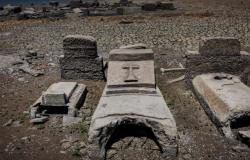
Dental implant is a complex intervention that requires specialist resources, technology and, last but not least, money. On average, the success rate of a dental implant exceeds 95%, but replacing a lost natural tooth with an implant does not exclude the rigorous maintenance of dental hygiene, which remains very important.
Dr. Ionuț Leahu is the founder of the Dr. Leahu Dental Clinics, part of the Queen Maria Health NetworkPhoto: Dr. Leahu Dental Clinics
Dr. Ionuț Leahu, dentist with competence in Oral Implantology and Master in Oral Implantology and Periodontology, The founder of Dental Clinics Dr. Leahu, part of the Queen Maria Health Network, details the mistakes that can endanger the dental implant and how they can be prevented.
Watch out for the loss of the first tooth!
The first mistake is that you lost a tooth, points out Dr. Leahu: “And why do I say this? Because my colleagues and I, the whole team, help the patient understand why he lost his tooth. And we, as doctors, need to understand why the patient in front of us now needs this operation, because from this understanding some lessons can be learned. Thus, if the patient has lost a tooth or perhaps all natural teeth show a type of behavior towards oneself. And if they don’t change anything about this behavior, there are high risks of remaining without the dental implants”, warns Dr. Leahu.
Beyond “genetic bad luck”, that is, our dowry with which dental health is linked, a very important risk factor in the loss of natural teeth is smoking. “Statistically speaking, about 80% of patients who remain completely toothless smoke or have smoked in the past. If you also have a poorer genetic endowment and smoke, there is a very high risk of being toothless by the age of 35!”, warns the doctor.
What we can and cannot control about dental health
There are three things we can control when it comes to dental health. The first is what we eat and habits like smoking. “And it is clear that we will have problems if we choose the cigarette more often than the toothbrush”, the doctor warns.
The second thing we have control over is also related to brushing our teeth. How well we do it. And we need to brush our teeth properly, whether we have natural teeth or implants.
The third thing is the choice of the medical team. “Furthermore, today we are talking about the medical institution that I choose to be with me on my dental journey through life. All three of these things must be considered. And what I tell the patient is that a third of the problem is solved, because they are in the right institution”, says Dr. Leahu.
Also in the clinic, the patient is taught to brush his teeth correctly. And it’s not just theory: “Sometimes we give him a toothbrush, ask him to brush, ask him if he thinks he’s washed well. If so, then we apply a plaque developer that stains it. And then it’s easy for him to understand in which area he didn’t brush properly and he can fix it.”
Lack of controls endangers the work
Another mistake that can put the dental implant at risk is not coming for check-ups during the healing period. After any surgical intervention, says Dr. Leahu, whether it is the extraction of one or several teeth or the placement of an implant, it is normal for the site of the intervention to become inflamed. However, it is not normal for the inflammation to occur two or three weeks after the operation, in which case the infection is most likely present.
Such a patient, Dr. Leahu warns, must urgently come for a medical check-up, even if it is not scheduled.
Temporary teeth must be protected
A mistake with noticeable effects occurs during the period of wearing the provisional prosthetic work. “There are patients in whom we load immediately – that is, we put temporary teeth – and if they do not follow the soft diet and put pressure on this temporary work, they risk ruining it. I’ve had patients bite into quince, eat mitites and schnitzels, or even open a bottle of wine with this temporary denture. It’s clear that they shouldn’t do that with temporary teeth,” points out Dr. Leahu.
A patient with broken temporary teeth who does not come to the check-up can dislodge an implant that is in the healing period. This can happen two to three months after the implant surgery. “Another mistake I’ve seen with implant patients is that they don’t show up on time for medical check-ups. I mean, I put in the implants and the temporary denture. We are going to replace it with the long-term denture after four months or after six months. Of course you can delay a few more months with the long-term dentures, let’s say. But if you come after three years, it’s normal to have a problem there,” warns the doctor.
Because the provisional work is designed for the situation in which the patient is immediately after the operation, during the healing period. “And she’s not that resilient. That is, it does not withstand masticatory stress for very long. In addition, it creates surfaces that are filled with bacteria and are difficult to clean. I had a patient who I put a temporary denture in 2011 and he came for his first checkup in 2022! And he was already in trouble. The work had gotten dirty, no one had cleaned it for years, and it got infected around the implants. And from here, a whole series of problems”, says Dr. Ionuț Leahu.
Thorough cleaning is done with oral douche
Long-term works are designed so that the patient can maintain and clean them easily. How do we do this? First, with the help of the toothbrush. The oral shower must also be indispensable, which, through the pressure of the water, cleans the bridge on the implants below. What is possibly left uncleaned, is sanitized at the periodic checkup carried out in the dentist’s office, twice a year. The work can be dismantled, cleaned, repaired – if necessary – after which it is put back in place, and the patient sees his life in peace.
Flossing is useful, but not much help when it comes to cleaning underneath the work. I mean, you need some dexterity, and as many don’t have, I can solve the problem with mouthwash.
With long-term work, patients can rediscover the joy of eating whatever they want. And if something breaks, it can be fixed. “With long-term works, that’s the beauty. If you are in the situation where you have to replace everything, you can choose a work on a titanium skeleton, with zirconium or ceramic teeth. They are extremely solid and withstand mechanical stress very well. So you can eat whatever you want without any worries. And that’s exactly what I tell the patients, because after all, in the first year after we receive these works, we do a little break-in – so to speak. That is, the patient must rediscover this joy of eating, of biting, without fear. And if it somehow manages to screw something up, the good news is we can fix it. And it’s easy to fix. That is, it does not require another operation. If something broke, it’s like going to change winter tires to summer tires. There are some screws that we are undoing. The work is dismantled and reassembled. Nothing hurts, no anesthesia is needed, no blood flows”, concludes Dr. Ionuț Leahu.
Article supported by Dr. Leahu Dental Clinics
Tags: youre genetically unlucky smoke toothless youre mistakes leave dental implant
-




